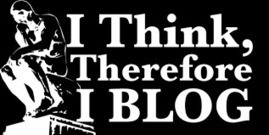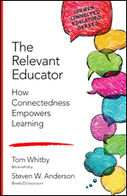Technology has changed the dynamic of curating information for teachers and students. It gives access to information never before so readily available, or so easily curated. Technology also enables users the ability to publish acquired information in various formats for consumption by others. Additionally, it offers a means in many cases to analyze data in ways that could not be done so easily before technology had become so ubiquitous.
Communication has been upended by technology. There are many ways for people to communicate. We have gone way beyond the dial up telephone. Not only can we communicate with voice, but we can also transmit documents, files, videos, audio files, and live streaming. Gutenberg and Bell would most certainly be impressed.
Access to all of these wonders of technology requires a different mindset than that of the early 20th century. It requires the ability to be flexible and adapt to the constant changes that come with technology. It requires one to commit to being a lifelong learner. It also requires a strict adherence to critical thinking in order to recognize, that which offers value from that which is crap.
Learn more / En savoir plus / Mehr erfahren:



 Your new post is loading...
Your new post is loading...












Technology has changed the dynamic of curating information for teachers and students. It gives access to information never before so readily available, or so easily curated. Technology also enables users the ability to publish acquired information in various formats for consumption by others. Additionally, it offers a means in many cases to analyze data in ways that could not be done so easily before technology had become so ubiquitous.
Communication has been upended by technology. There are many ways for people to communicate. We have gone way beyond the dial up telephone. Not only can we communicate with voice, but we can also transmit documents, files, videos, audio files, and live streaming. Gutenberg and Bell would most certainly be impressed.
Access to all of these wonders of technology requires a different mindset than that of the early 20th century. It requires the ability to be flexible and adapt to the constant changes that come with technology. It requires one to commit to being a lifelong learner. It also requires a strict adherence to critical thinking in order to recognize, that which offers value from that which is crap.
Learn more / En savoir plus / Mehr erfahren:
https://gustmees.wordpress.com/2015/07/19/learning-path-for-professional-21st-century-learning-by-ict-practice/